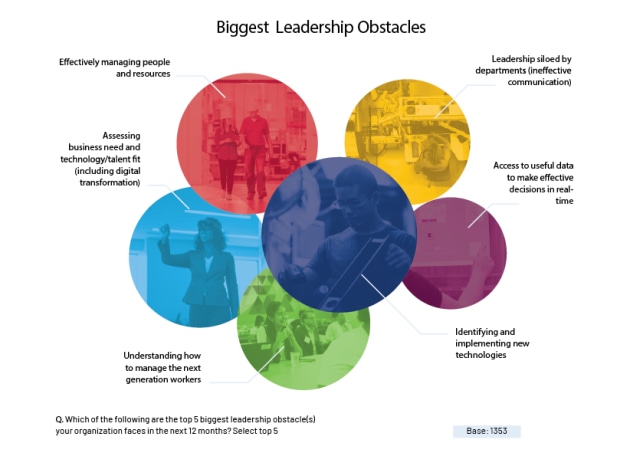More than 40 per cent of Australian manufacturers struggle to get ahead of their competition due to a lack of technology and skilled workforce, a study by automation specialist Rockwell Automation (RA) found.
When asked what the five biggest leadership obstacles were in the next 12 months, the top response was 'Identifying and implementing new technologies', followed by 'Effectively managing people and resources'. Third was ‘Assessing business need and technology/talent fit (including digital transformation)’.

(Source: Rockwell Automation)
RA’s global 2023 State of Manufacturing Report surveyed more than 1350 manufacturers in 13 of the top manufacturing countries in the world. In Australia, it interviewed 75 (51:49 per cent male/female split) leaders in the manufacturing industry to understand what the key areas are that need to be addressed. Around 85 per cent of them were decision makers.
While 73 per cent said smart manufacturing was very important, only 25 per cent said they were extremely familiar with the technologies. In the US and France, the figure was almost double that.
“This may explain why 71 percent of Australia’s C-suite leaders identify technology paralysis as one of the largest barriers to growth. An excess of technology options is making selection and adoption much more challenging, especially when familiarity with the solutions is quite low,” RA said.

(Source: Rockwell Automation)
When it comes to investing in robotic process automation, almost half of the respondents (48 per cent) said they had already invested, while 46 percent said they had the intention to do so. This puts us on par with the US, which had 49 per cent say they had already invested.
Process Automation showed widespread adoption and promising growth. 64 per cent have already invested in the technology with 43 per cent planning to invest more. RA said this compared well with the US and UK, both of which report 68 per cent investment rates.
Globally, the survey found 33 per cent thought process automation had the biggest ROI.
The report also revealed that 86 per cent of C-suite responders would invest in cloud technology because of the disruption of the last 12 months. That was a 62 per cent jump from last year (24 per cent). RA said a cloud-based operation may help mitigate the effects of variable staffing levels, monitoring the supply chain, and accommodating hybrid work.
Click here to download the full report.









